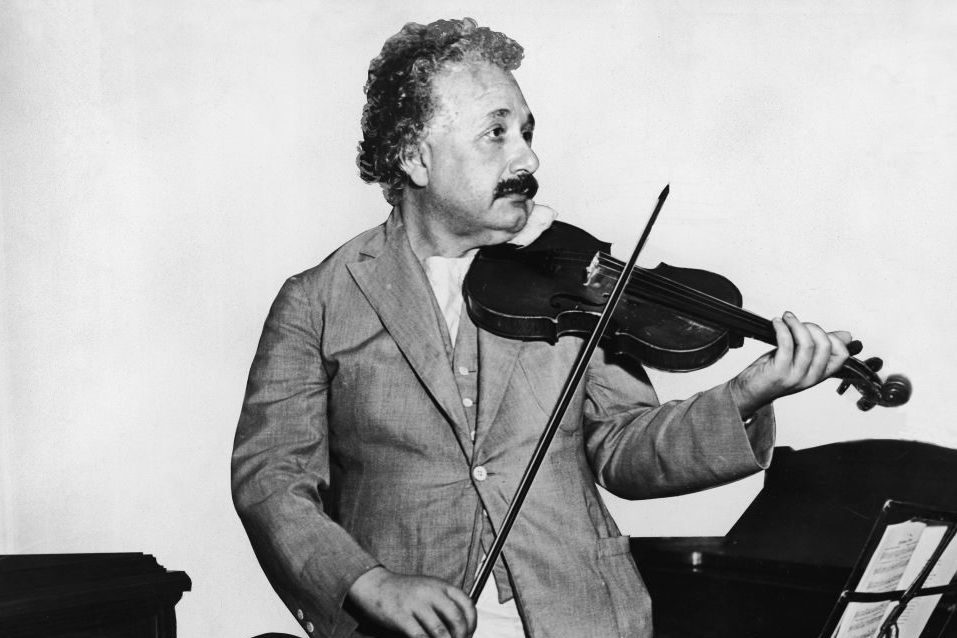Whenever I’m at a dinner party with very clever people, I always feel like I’m the dumbest person in the room — and that’s because I am the dumbest person in the room. I should point out that I’m not really dumb dumb — well, most of the time. But by every test of intelligence I am: I have a low IQ, I failed to get into a university, I don’t understand Google maps and I don’t get how the twenty-four-hour clock works. I speak no other languages. In terms of cognitive capital, I’m broke.
Everyone in my circle wants to be the smartest person in the room. Smart is sexy. Clever women like clever men. They never have sex with dumb guys like me. Is it a breeding thing or a reading thing? Fortunately, girls like men who are funny, or I would still be a virgin.
But because I can talk like a clever person — I know the right names to drop and references to make — nobody believes me when I confess to being dumb. Friends say I’m being silly. Strangers say I’m being self-deprecating. And when I protest and say, “Honestly, I don’t know anything — and I don’t mean that in a clever Socratic, I-Know-That-I-Know Nothing-Therefore-I’m-Clever way either.” They say: Ha-Ha-Ha. Very clever.
When people say they feel like a “fraud” and that all their life they’ve been “faking it,” people nod along and say, yeah, me too! But say you’re dumb and you stand alone. It’s so liberating when you give up trying to be clever. I don’t care about being the cleverest person in the room; I want to be the most lovable person or the funniest person in the room. Cleverness is overrated. Making clever comments about great matters of geopolitical concern, climate change, culture war doesn’t interest me.
When young, I wanted to be clever, and if I couldn’t be clever, I wanted to pass as clever. So I would read the Economist, the TLS and the New York Review of Books. I fooled a lot of people.
Matters were complicated by the fact that being Jewish meant I should be smart and intellectually accomplished like my Jewish friends who were academic highflyers and later became very successful in their chosen careers. I was the dumb one in that crowd. Being a dumb Jew is like being a black man with a small penis. We all know that’s a dumb racial stereotype — but that doesn’t stop people from having certain expectations.
I wanted to be like one of those serious-minded, clever European Jews, like George Steiner, Ernest Gelner or Isaiah Berlin, but I couldn’t make the grade. Then I wanted to hang out with all those clever guys — Niall Ferguson, Andrew Sullivan and Christopher Hitchens. Hitchens clearly believed he wasn’t just the cleverest guy in the room, but the entire American continent. That’s the thing about really clever people: they can never see the limitations of their own cleverness.
But something has happened to the whole business of being clever — its cultural prestige and glamour have depreciated. We admire people who are “savvy” more than clever. And in our post-truth-my-truth Trumpian world, cleverness doesn’t count for so much. Clever people — the experts and academics — are dismissed as part of the “arrogant” elites who think they know better than common people. If truth is just whatever my tribe thinks, then what’s the point of clever intellectuals?
That said, I must confess that American intellectual life looks to me far more stimulating than what we have here in the UK. And that’s partly because American public intellectuals aren’t embarrassed to be serious about ideas.
It’s an old cliché of British commentators that the English don’t like intellectuals. (I don’t think that’s true. Most people don’t even think about intellectuals.) It’s English intellectuals who have a problem with being serious-minded intellectuals. Seriousness is the great fear of the English thinking classes. It smacks of being earnest, of stuffiness and self-importance.
You can hear this fear of being serious whenever two clever English people on a podcast discuss something serious — they feel obliged to respond to the slightest suggestion of something comic with a sustained outburst of exaggerated hilarity and contrived chuckles. It’s a way of signaling to their audience that they’re not taking all this serious stuff too seriously.
I suspect that behind this is the fear of being seen as a snob or a cultural elitist. This might explain why over the past month I’ve had to listen to so many clever, cultured people proudly proclaiming that they just loved Barbie and couldn’t be bothered to see Oppenheimer. This is cultural slumming at its worst. I’ve not heard one intelligent person just come out and say: Barbie is shit!
But I did hear at one dinner party the hosts referred to each other as “Barbie Sontag!” and “ Ken Chomsky”! Hearing that I concluded: maybe I’m not so dumb after all.
This article was originally published in The Spectator’s October 2023 World edition.


















